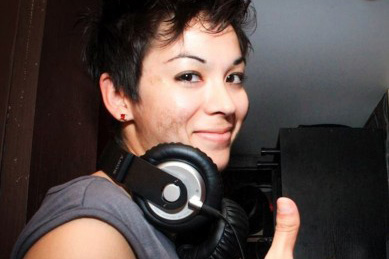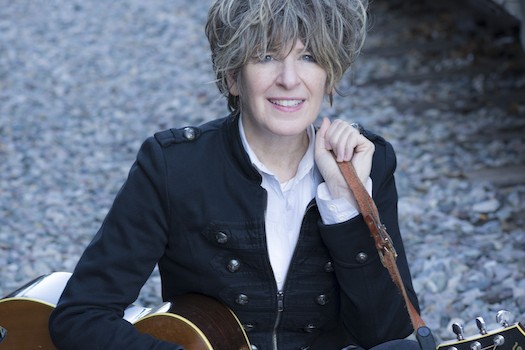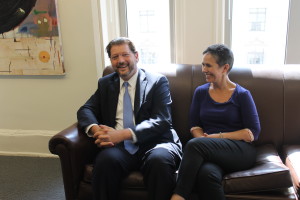

Interview by Tiffany Mott-Smith

David Grosso and Serra Sippel (Photo courtesy of Councilmember Grosso)
Earlier this moth, Tagg had the opportunity to sit down with Councilmember David Grosso and Executive Director of the Center for Health and Gender Equality, Serra Sippel.
Both Grosso and Sippel were raised in the D.C. metropolitan area and also happen to be husband and wife. This power couple and awe-inspiring allies have been advocating for the rights of others for over 20 years. They both seem to not only be ready, but also eager to keep that trend going.
They discuss their social justice journey, as well as how their partnership and politics are as much professional as they are personal.
What made you seek out careers in social justice?
David: My mom is a social activist and has been her whole life. She raised me that way. She lives in an alternative community now in Petworth, near where I grew up. I’ve bailed my mom out of jail many times! Even when I was bartending she was pushing me and asking, “Are you doing your part to improve the life for others?” She’s always challenged me to do what I could to try to make the world a better place.
Serra: I was raised feminist and have always been pushed to think about equality and inequality. Even growing up Catholic and seeing women not being allowed to be priests made me think. I studied in Spain for a year at the time people were organizing around liberation theology and addressing how poverty affects women. I’d made up my mind to go to South America next, but I realized I don’t need to leave the United States to work with the poor. I knew social justice was going to be my life.
How has the battle for LGBT equality informed your politics?
Serra: It’s been very personal for us, especially in Indiana when we were in school and having friends who were lesbian and gay, and seeing the discrimination they faced even in their religious communities. Seeing so many of my friends not being able to be open just shocked me. The politics become personal when you see the hurt. We rejected marriage for a long-time because of it—we wanted to have our friends be a part of it. It just didn’t seem fair.
David: No matter what, when there are oppressed people, there is work to be done. I’ve learned so much from Serra and the work she’s done internationally. She taught me that you have to recognize individual rights and a person’s needs. When you get into a position of power like I am, or get into a position of strength like Serra is, you have to advocate for your friends. You have to advocate for everyone.
How has your relationship informed your work?
Serra: Our work is actually how we met. We were in Texas working for a homeless shelter and transitional facility for women and children. I was already living there with the families. It was a group of nuns and I facilitating the programming. I actually picked him up from the airport when he arrived and I was a little wary having a man in our space like that. I was concerned it would disturb the safe space we’d created, but he actually was great with the families.
David: I was brought on through the Brethren Volunteer Service to coordinate construction projects for the facility and work with the children’s program. Serra was the one who convinced me to go to college in the first place. That’s how I ended up at Earlham College.
Can you tell us a little about the work projects and initiatives you’re working on?
David: Our office has been doing a lot of work on eliminating prostitution free zones. They target trans people in a way that is unfair, unconstitutional, and inhumane. It was a plan of mine to get on the council and undo them. It was an uphill battle because some of the council members I respect the most were the ones advocating the practice. But fortunately, the District Attorney ruled them unconstitutional, so we drafted legislation to get them repealed altogether. Next, we’re looking at drug free zones and other loitering laws that can be a real violation of human rights.
Serra: At the Center for Health and Gender Equality, we focus our advocacy with congress because they control the appropriations with regard to international family planning, maternal health, and HIV/AIDS. On the executive side, we work to influence the policies that guide the spending of that money. When I came into my position it was during the Bush administration, and they were exporting their reproductive rights policies. Among other things, these left out most lesbians and individuals assigned female at birth. In 2011, we were able to convince the Obama administration to institute more inclusive comprehensive prevention policies.
How do you stay grounded professionally and personally?
Serra: We enjoy one another’s company. But, we like to work hard as well. We also don’t have children; so the most we have to juggle are the dogs.
David: We start every morning together with a cup of coffee and a good old-fashioned paper. Every minute we have together is a good time. I don’t think I could do this work without Serra. We’re one another’s accountability person.